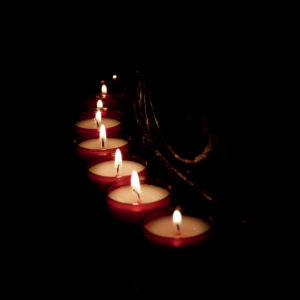
The Nobel Peace Prize was first awarded in 1901 to Henry Dunant for his role in founding the International Committee of the Red Cross, and to Frederic Passy, who was a main organizer of the first Universal Peace Congress. Since that time, 16 women have won the Nobel Peace Prize, more than any other Nobel Prize. We’d like to take the opportunity to mention some of these great women who have contributed to worldwide peace.
Bertha von Suttner
The first woman to win the Nobel Prize, Suttner worked for a few months as secretary and housekeeper to Alfred Nobel. She would correspond with him until he died in 1896. Some believe she influenced him to offer a peace prize in his will. She was given the prize in 1905. She was a leader in the peace movement of the late 19th century in Austria and wrote “Lay Down Your Arms!” The German Peace Society was her organization, and she was part of the organization of The Hague Convention.
Jane Addams
It would be 26 years before the Nobel Committee would award the prize to another woman. Jane Addams shared the prize in 1931 with Nicholas Murray Butler. Addams is considered the mother of social work, but she was a suffragette, activist and leader in women’s rights. She was voted president of the Women’s International League for Peace and Freedom and served in that capacity, which was the reason she was given the Peace Prize.
Emily Greene Balch
Balch shared the award with John Raleigh Mott in 1946. Balch joined the Women’s International League for Peace and Freedom through Addams’ connections, but she, too, was a pacifist and leader in the women’s rights movement. Balch was instrumental in WWII for providing for refugees of the war.
Betty Williams and Mairead Corrigan
Williams and Corrigan shared the prize in 1976 for their efforts in Northern Ireland as peace activists. They founded the Community for Peace People, which began as an organization of women for peace. Eventually, they went to a gender-neutral name when they realized that it wasn’t only women who wanted peace. Corrigan believed that re-education was the way to end the violence. Their simple declaration of peace resonates today:
- “We have a simple message to the world from this movement for Peace.
- We want to live and love and build a just and peaceful society.
- We want for our children, as we want for ourselves, our lives at home, at work, and at play to be lives of joy and peace.”
Mother Teresa
In 1979, Mother Teresa, founder of the Missionaries of Charity, received the Nobel Peace Prize. She requested that instead of a ceremonial banquet, the money traditionally spent on the party be given to the poor in India. She never believed that she was worthy of the prize, but hoped that it would bring awareness of the poor.
Jody Williams
In 1997, Williams shared the Nobel Peace Prize with the International Campaign to Ban Landmines. Her name is not as recognizable as Mother Teresa’s, but Williams has been included in the Forbes magazine 100 most powerful women in the world. She is a founding coordinator of the International Campaign to Ban Landmines and fought extensively for an international treaty banning antipersonnel landmines. She believes:
“The image of peace with a dove flying over a rainbow and people holding hands singing kumbaya ends up infantilizing people who believe that sustainable peace is possible. If you think that singing and looking at a rainbow will suddenly make peace appear then you’re not capable of meaningful thought, or understanding the difficulties of the world.”
She is an inspiration to women around the world because she gets the job done.

